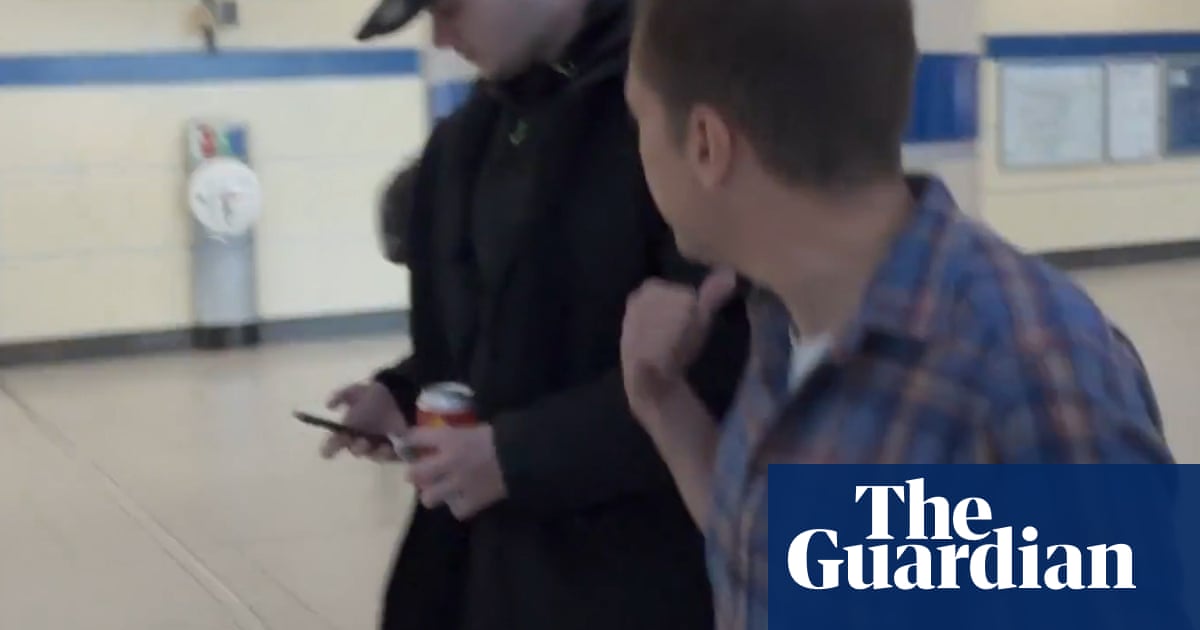Robert Jenrick is perhaps best known to the public as the former government minister who unlawfully intervened in a planning decision involving a billionaire Conservative party donor.
To others, he may be the Tory MP that parliament’s spending watchdog said wascentrally involved in wasting nearly £100mon a botched plan to house asylum seekers.
Now, however, Jenrick has a new claim to fame: as the man who released a video of himself delivering “vigilante justice” to people he accused of fare dodging inLondon.
The failed party leadership candidate posted a video online on Thursday morning in which he accused the London mayor, Sadiq Khan, of “driving a proud city into the ground”, adding: “Lawbreaking is out of control. He’s not acting. So, I did.”
Jenrick is seen approaching people near tube barriers and asking them if they think “it is all right not to pay”.
Addressing the camera during the minute-long clip, Jenrick – whoin 2020 acceptedthat his approval of Richard Desmond’s building project had been unlawful – said it was “so annoying watching so many people break the law and get away with it”. He added that the state needed to “reassert itself and go after lawbreakers”.
Transport for London (TfL) said fare evasion had actually fallen slightly, down 0.3% from 2023-24 to 3.5%. And officials claimed it was lower than many cities around the world, citing the 13% rate in New York City. They said they hoped to cut fare evasion in the capital to 1.5% by 2030.
Nevertheless, it is a serious problem in London, costing an estimated £130m a year. Siwan Hayward, TfL’s director of security, policing and enforcement, said: “Fare evasion is unacceptable. That is why we are strengthening our capability to deter and detect fare evaders, including expanding our team of professional investigators to target the most prolific fare evaders across the network.”
The Transport Salaried Staffs’ Association said it had “consistently called for a fully resourced British Transport Police and trained revenue protection officers to tackle fare evasion effectively and safely”.
The union added: “The latest incident involving a Conservative MP, who took it upon himself to confront fare dodgers on public transport, highlights the dangers of vigilante justice.”
Jenrick said in the clip: “It’s the same with bike theft, phone theft, tool theft, shoplifting, drugs in town centres, weird Turkish barber shops. It’s all chipping away at society.”
Asked to explain what he meant, Jenrick said: “Obviously, many Turkish barber shops are good local businesses. However, when small towns have as many as 14 barber shops, many of them Turkish-styled and sitting empty, there are questions to answer.
“The NationalCrimeAgency set out earlier this year that it’s investigating the boom in ‘Turkish barber shops’ over concerns many are being used as fronts for money laundering drug and criminal profits. The authorities should continue to pursue suspicious premises.”
Hours after the video emerged, Jenrick accepted he had not got permission to film on TfL premises, telling LBC radio he did not want to forewarn the local government body of his plan to potentially embarrass it.
While it is understood he did not breach the letter of TfL’s rules, a spokesperson said: “We expect permission to be sought for filming of this nature.”
It is understood TfL expects elected officials to work with it in such circumstances.
